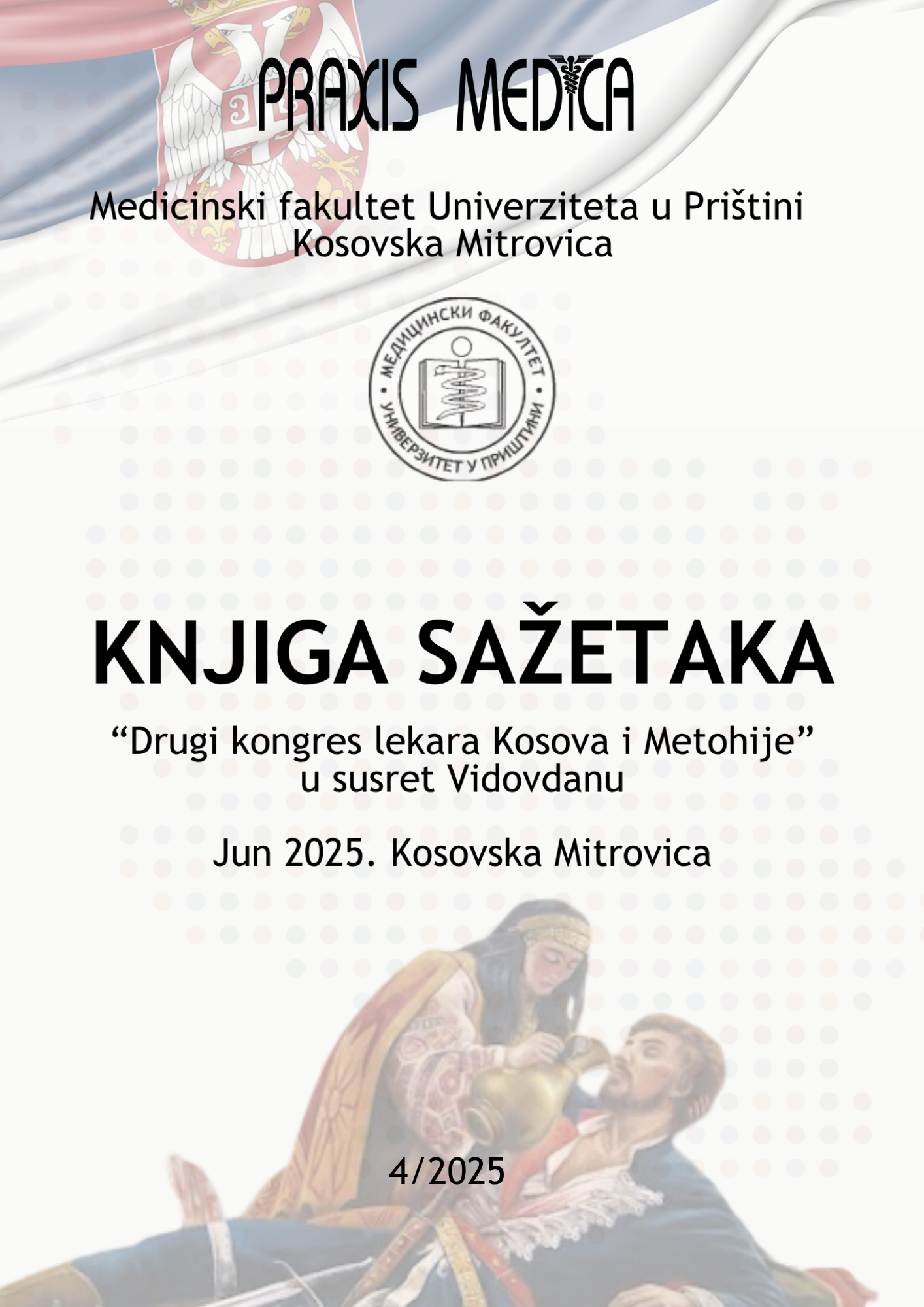Current issue

Volume 53, Issue 4, 2025
Online ISSN: 2560-3310
ISSN: 0350-8773
Volume 53 , Issue 4, (2025)
Published: 30.06.2025.
Open Access
All issues
Contents
01.12.2020.
Professional paper
The impact of neuropsychological assessment in epileptic focus localization
Introduction: Epilepsy that takes place in the temporal lobe is manifested through three symptoms: aura, temporal pseudoabsence and automatisms, while right-sided temporal lobe epilepsy had been also linked with visual or image learning and memory deficits. Case outline: Patient 24 years old in 2020. In July 2020 had complex partial seizures with an unordinary psychomotoric reactions and verbalization, followed by qualitative conscience change in the form of confusion and amnesia. Therapy with paroxetine showed no result. Neuropsychological evaluation showed no other cognitive deficit than severe visuoconstruction dyspraxia and discrete decrease in complex attention. In behavioral aspect prodromal symptoms of tension, anxiety and depression were occurred. Conclusion: Neuropsychological assessment is, along the magnetic resonance imaging and electroencephalographic, the most important method for indicating cognitive deficit in epilepsy and determining the epileptic focus.
Marina Malobabić, Boban Biševac, Vesna Stokanović
01.12.2019.
Professional paper
Strategije suočavanja sa anksioznošću u situaciji testiranja engleskog jezika kod studenata visokog i niskog samopoštovanja
Introduction: Different types of tests present a great part of the academic life, and the tests themselves are extremely stressful situations for most students. The question of strategies used for coping with anxiety in testing situations is raised by the anxiety experienced by students and the levels of their self-esteem during tests. Aim of the paper: The aim of the paper is to take into consideration language anxiety, self-esteem and social and demographic variables as predictors of active use of strategies for coping with the testing situation. Material and methodology: This research included 338 students from five faculties/colleges, with an average age of 21.82±2.561, who were administered the following scales: Rosenberg's Self-esteem Scale, the Coping with the Testing Situation Scale and Foreign Language Classroom Anxiety Scale. Results: The Subscale for Language Anxiety during Testing has the highest reversed predictive value (beta=-0.43, p<0.001) of coping strategies for the testing situation; older respondents have less expressed ability of coping with the testing (beta=-0.23, p<0.001), and the higher the level of fear from negative evaluation (beta=0.21, p<0.001), the more the respondents are coping with the testing situation. Conclusion: The higher the testing anxiety, the less will the students use coping strategies, and the older students cope less with stressful testing situations, but the greater the presence of a more expressed fear of inefficiency, the more will the respondents cope with the testing situation through various strategies.
Marina Malobabić, Ivana Nešić, Vesna Jokanović





